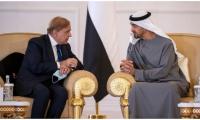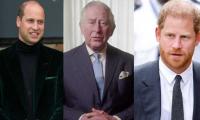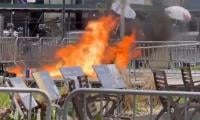Every nation has a past. It is the task of historians to reconstruct it on the basis of documents, folklore, monuments, and archaeological evidence such as weapons, tools, inscriptions and coins.
The past is interpreted differently, sometimes glorified and sometimes portrayed as dark and insignificant. It all depends on the present condition in which the historian is living, whether s/he is a part of a developed and progressive society, or a backward and retrogressive one.
When the European society investigates its past, its main object is to understand the evolutionary process of society and the stages it passed and reached the present. The interpretation of progress of society helps not only to understand the present but also to determine its future.
Western society did many experiments to discover the past and the nature of the people at that time and their standards of living and the environment which had an impact on their traditions and values. In England, they built a medieval village containing houses, artisan shops markets and streets. When someone visits this village, they find themselves in the medieval period and realises the difference of the past and present.
A similar experiment was done in Germany, where a medieval town was built and a team of volunteers offered to live in the village for six months under the same conditions that medieval people experienced. There was no modern facility for running water, electricity, and removal of garbage. They had to cook their food on fire and endure the inclemency of weather without modern conveniences. They made efforts that the volunteers speak the old dialect and not use modern vocabulary. The purpose of the experiment was to study how environments and living conditions evolve cultural values, social institutions and change of language and dialect. On these bases, emotions and sensibilities could also be understood. This interpretation of the past shows the evolutionary stages of a society.
On the other hand are those societies that are backward, decadent and have lost their creativity as well as a respectable status in the comity of nations. In their case, historians make efforts to build a glorious past to satisfy the ego of that society. The creation of a grand past would create ambitions in society to revive such a past to replace their decaying present conditions.
The revivalist approach to the past also shows the intellectual bankruptcy of a society not in a position to create new ideas to overpower their backwardness but one that relies on past values to improve its present condition. What such societies have failed to understand is that values and institutions are a product of a certain time and space and cannot be revived under different circumstances.
However, historians, intellectuals and artists in such societies portray the past in such beautiful colours and present it in such a fascinating way that their societies almost become their prisoners. This is the position of the Muslim society, which is nostalgic about its past and derives its pride not from its present position but from past achievements. This attitude prevents any attempt to look forward to comprehend the weaknesses in their history and system and remove outdated traditions. This approach has made Muslim society conservative and fearful about adopting the modernisation of their social and political structure.
It is worth mentioning that there is no golden period in history. It is historians who make any period either golden or dark. If historians construct a golden period in a backward society, this would undermine any attempt to modernise society. When a society is falsely under the grip of a ‘golden age’, it loses its confidence to build on the new and energetic traditions needed by the modern time.
In Pakistani politics, the slogan of the ‘golden period’ of history is repeated. Generally, it is believed that past values are the solution to present problems. History is used as a tool to construct the past and popularise it with an object to assure people that certain historical values still have the utility and energy to change their condition and make them powerful to compete with prevalent challenges.
This point of view is propagated in so-called historical novels, short stories and films – especially the poetry of Hali (d1914) and Iqbal (d1938).
Such points of view tightly hold hostage a society by their narration of past achievements of the Muslim rulers who had conquered and defeated different nations and established their rule in far-off places. Till this is changed, Muslim society will remain a prisoner of the past and will not be able to achieve freedom of thought or creation of a modern society, which is a need of the time.
The writer is a veteran historian and scholar.







